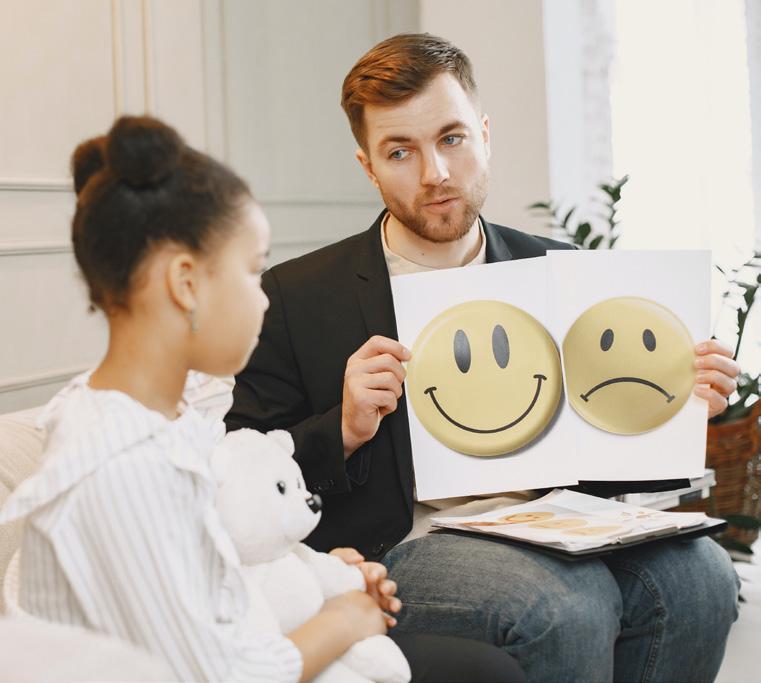
2 minute read
Summer group therapy: helping your child thrive with 4 key benefits
Brought to you by - Summit Counseling Center
It’s no secret that most kids love summer - with its long days, warm weather, and lack of school, summer break provides a welcome pause from the structure and routine of the academic year. For some kids, however, summer break can be a difficult time. Without the support, resources, and social exposure provided by school, they may struggle to maintain their mental health and well-being after the last school bell rings in May. Therapy groups during the summer can benefit all students, no matter where they fall along the spectrum of mental health, by helping provide a safe and supportive environment for children to learn new skills, build healthy relationships, and address any mental health concerns they may be experiencing.
According to a 2019 study, summer programs designed for children and youth with social and emotional difficulties showed moderate evidence of effectiveness in improving social skills, self-esteem, and overall emotional well-being while decreasing anxiety, depression, and unwanted behaviors at home (National Academies of Sciences, Engineering, and Medicine. 2019. Shaping Summertime Experiences: Opportunities to Promote Healthy Development and Well-Being for Children and Youth. Washington, DC: The National Academies Press). There are several other potential benefits of therapy groups for kids during summer break, including:
1. Social support: Therapy groups can provide a sense of community and social support for children who may feel isolated or disconnected during summer break, proving particularly helpful for kids who struggle with social anxiety, shyness, or other social difficulties. Therapy groups also allow kids to receive feedback and support from their peers, which can be great for students who may struggle receiving feedback from adults or authority figures.
2. Skill-building: Many therapy groups for kids focus on teaching specific skills, such as social skills, coping strategies, or emotional regulation techniques. Not only are these skills helpful during summer break when kids may have more unstructured time and less support from school-based resources, but they are also invaluable to have once school restarts in the fall.
3. Safe environment: If your student struggles to open up at home, therapy groups can help by providing a safe and supportive space for kids to explore their thoughts, feelings, and experiences. Additionally, participating in a therapy group can help reduce the stigma associated with mental health issues, as kids can see that they are not alone in their struggles and that seeking help is a normal and healthy behavior.
4. Continuity of care: By regularly practicing skills throughout the summer, therapy groups can help children maintain the progress they made during the school year and prevent any regression that may occur during summer break.
Summit Counseling Center is offering both individual and group therapy services for Kindergarten through 12th grade students throughout the summer, providing a supportive and structured environment for children to work on their mental health goals and develop new skills and coping strategies. Selection requests for our 6-week groups close on May 12th, so register your student now at tinyurl.com/ SCCSummer23!









